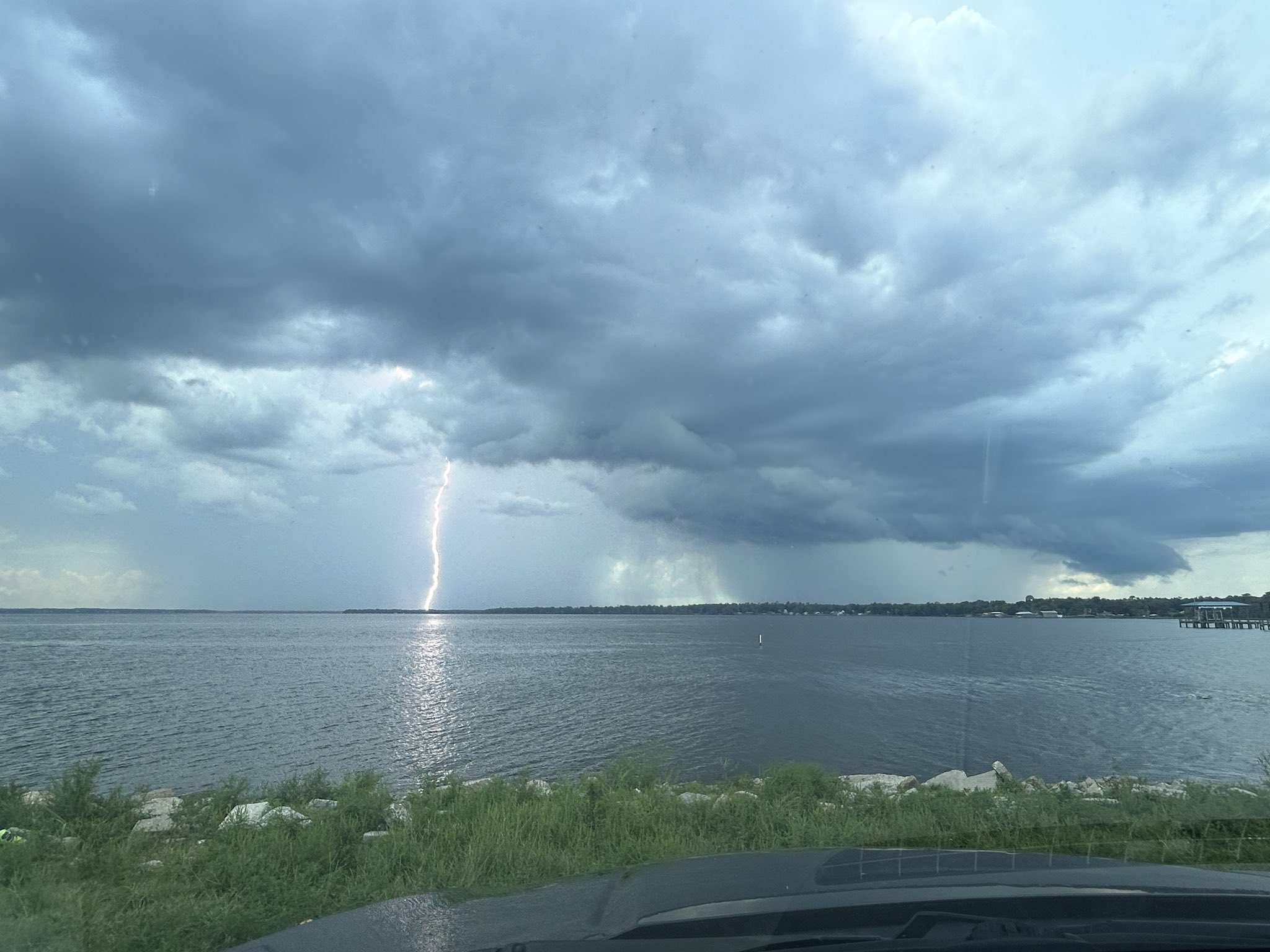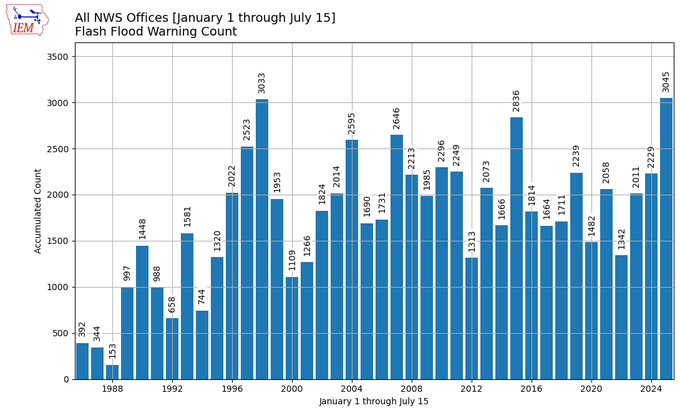JACKSONVILLE, Fla. — To become a part of the First Alert Neighborhood weather station network powered by Tempest - scan below &/or click * here *:
Updated every day throughout the hurricane season - “Talking the Tropics With Mike”.
It’s been an exceptionally rough week locally when it comes to lightning. Two teenagers fishing were struck & killed in Ware Co., Georgia... & a man was struck - but miraculously survived - on the St. Augustine Beach pier. July is the deadliest month for lightning & the national count is now 8 dead - 2 in Ga., 1 in Fl. Keep in mind that a lightning strike can travel up to 10 miles from its parent cloud.
Photo below by ‘BradenWX’ near the Shands Bridge, Clay Co. in early July:
Natural disasters continue to make headlines with flash flooding taking a major toll this summer. Through July 15th, the National Weather Service has issued the most flash flood warnings ever going back to at least the late 1980s. The capacity of the air to hold moisture is greater during the summer due to hotter temps. so flash flooding is relatively common this time of year. But this year - & summer in particular - has been a year with frequent & - unfortunately - deadly flooding.
Of course, the terrible Central Texas flooding remains in the headlines with somewhere near 100 people still missing as of July 16th with the death toll near 135. Unfortunately, there are conflicting accounts of what caused the flash flooding as even some gov’t. officials - including the Fl. Attorney General - seem to think at least some of the cause was weather modification/“manipulation”. While some cloud seeding was being done about 24 hours prior, there is *no* indication that the seeding contributed at all to the devastating flood. Cloud seeding only seeds clouds that have already developed & adds a maximum of about 20% to potential rainfall (so a cloud that might drop 1″ of rain could drop 1.2″ of rain).
#firstalertwx "here we go again" - natural disasters & paranoia ... details on the Texas flood: https://t.co/nMLbzspRdj - "Buresh Blog" @ActionNewsJax @WOKVNews pic.twitter.com/lXdwoo4PGg
— Mike Buresh (@MikeFirstAlert) July 16, 2025
Addressing disasters & disaster recovery...
Former U.S. & Florida FEMA Administrator Craig Fugate, drawing from decades of disaster experience (Andrew in 1992 in South Fl. & multiple Fl. hurricanes the first 10 years of this century highlighted by 2004 - Charley, Frances, Jeanne & Ivan), has identified critical flaws in how emergency management is often practiced. These “Deadly Seven Sins” serve as warnings against complacency, bureaucracy, and shortsighted planning.
1. We plan for what we are capable of responding to. Instead of preparing for catastrophic events, we often design plans around what systems can currently deliver. This guarantees failure when the event exceeds those limits.
2. We plan for our communities by placing the “too hard to do” in an annex. People with access and functional needs, children, the elderly, and pets are frequently sidelined into planning annexes—rather than being part of core planning. This marginalizes those who are often the most vulnerable.
3. We exercise to success. Too many drills are scripted to “go right.” Real preparedness means stress-testing systems, embracing uncertainty, and discovering failure points.
4. We think our emergency response system can scale up from emergency to disaster. Emergency response systems don’t automatically scale to meet catastrophic needs. Disasters break the system—they don’t just stress it.
5. We build our emergency management team around government, leaving out volunteer organizations, the private sector, and the public. A government-centric approach ignores the real capabilities of the Whole Community. Effective emergency management integrates all sectors.
6. We treat the public as a liability. Communities are seen as problems to manage, not partners in response. This mindset underestimates the resilience, resourcefulness, and critical role of the public.
7. We price risk too low to change behavior, and as a result, we continue to grow risk. Risk is underestimated in markets, policies, and development decisions. Without true pricing of risk, society continues to build vulnerability into the system.
Takeaway: Avoiding these seven sins requires bold thinking, uncomfortable conversations, and a commitment to inclusive, realistic, and scalable preparedness. As Fugate often says: “Hope is not a plan.”











